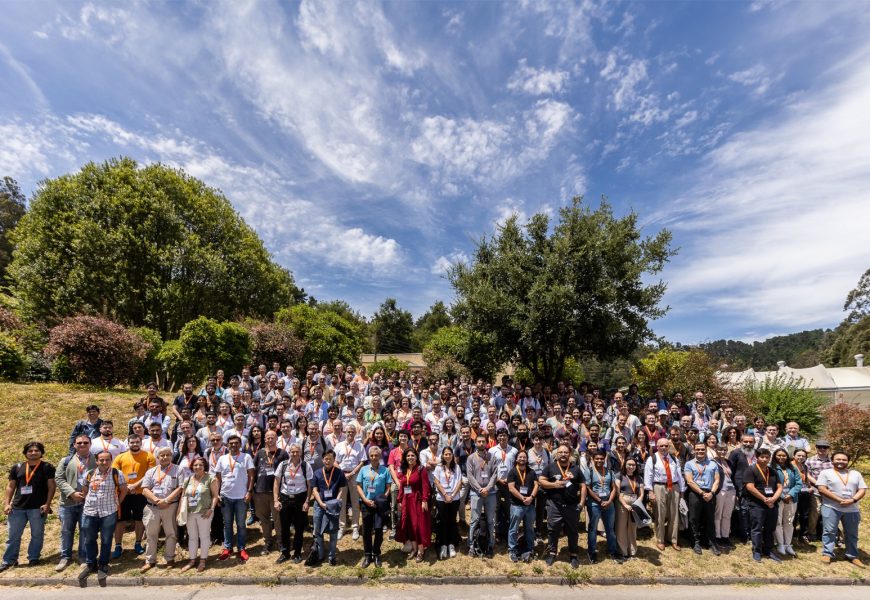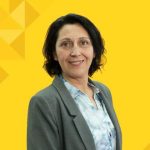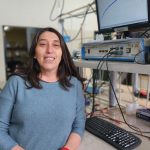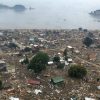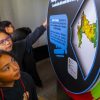For twenty years, the applied mathematics studied at the University of Concepción has supported projects related to water scarcity and improvements to copper concentrate production, among other solutions to problems in different industries.
By: Iván Tobar Bocaz – Journalist Mathematical Engineering Research Center, CI²MA ivtobar@udec.cl | Images: Courtesy of the Center for Mathematical Modeling, CMM
Almost two decades ago, researchers from the Universities of Concepción, Bio-Bio, and Católica de la Santísima Concepción joined specialists from the University of Chile to establish the Center for Mathematical Modeling (CMM), a research center in applied mathematics that has achieved a relevant international positioning.
“For about 20 years now, we have formed a productive group of specialists in numerical analysis of partial differential equations (NA of PDEs), with the support of the CMM and our three universities, and, in particular, the Mathematical Engineering Research Center, CI²MA, of UdeC,” said Dr. Raimund Bürger, principal investigator of CMM and professor at UdeC’s Faculty of Physical Sciences and Mathematics.
An important task of this productive research group is to contribute to understanding and solving sustainability-related challenges in different processes.
Dr. Bürger highlights two projects in this regard: the first, dedicated to analyzing problems in mining, and the second, linked to water scarcity.
The National Research and Development Agency funds the first one through the Anillo program, New floatation models in the mining industry: simulation, experimental validation, and prediction tools for the treatment of complex ores under water scarcity (ACT210030, directed by Dr. Fernando Betancourt Cerda, from UdeC’s Faculty of Engineering. “The flotation process is a critical stage in mining to obtain copper concentrate,” explained Dr. Bürger, the project’s deputy director. “The mathematical treatment of these models, and their numerical simulation, required original mathematical research” he emphasized. He also highlighted some milestones of the project’s implementation, such as the participation of the group in international events, the training of undergraduate and postgraduate students, and the relationship between outreach events and scientific dissemination.
“This project has been fundamental for progress in the mathematical modeling of flotation columns, using strongly degenerate systems of convection-diffusion equations and with discontinuous coefficients,” he pointed out.
Mathematical modeling for the efficient use of water
“Our objective is to apply mathematical tools to develop algorithms that allow us to computationally simulate phenomena associated with different industrial seawater desalination methods, such as reverse osmosis, which is the leading method, both in domestic plants and worldwide,” explains Dr. Ricardo Oyarzúa Vargas, academic at the University of Bio-Bio and director of the ‘Computational Mathematics for Desalination Problems’ (ACT210087) Anillo project. “In this way, we seek to contribute, from our experience, to address such a critical problem as water scarcity.”
The Concepción Center of Numerical Analysis of Partial Differential Equations (NA of PDEs) maintains an active collaboration dynamic, which is reflected in the results of these projects and in the large number of articles published by academic staff from the region’s universities that are involved.
The UCSC professor and CMM principal investigator, Dr. Jessika Camaño Valenzuela, highlights the numerous thesis co-directorships, both undergraduate and postgraduate. “Several researchers in this group studied in UdeC’s Doctoral Program in Applied Sciences with a minor in Mathematical Engineering, which has led to a natural connection with that institution.”
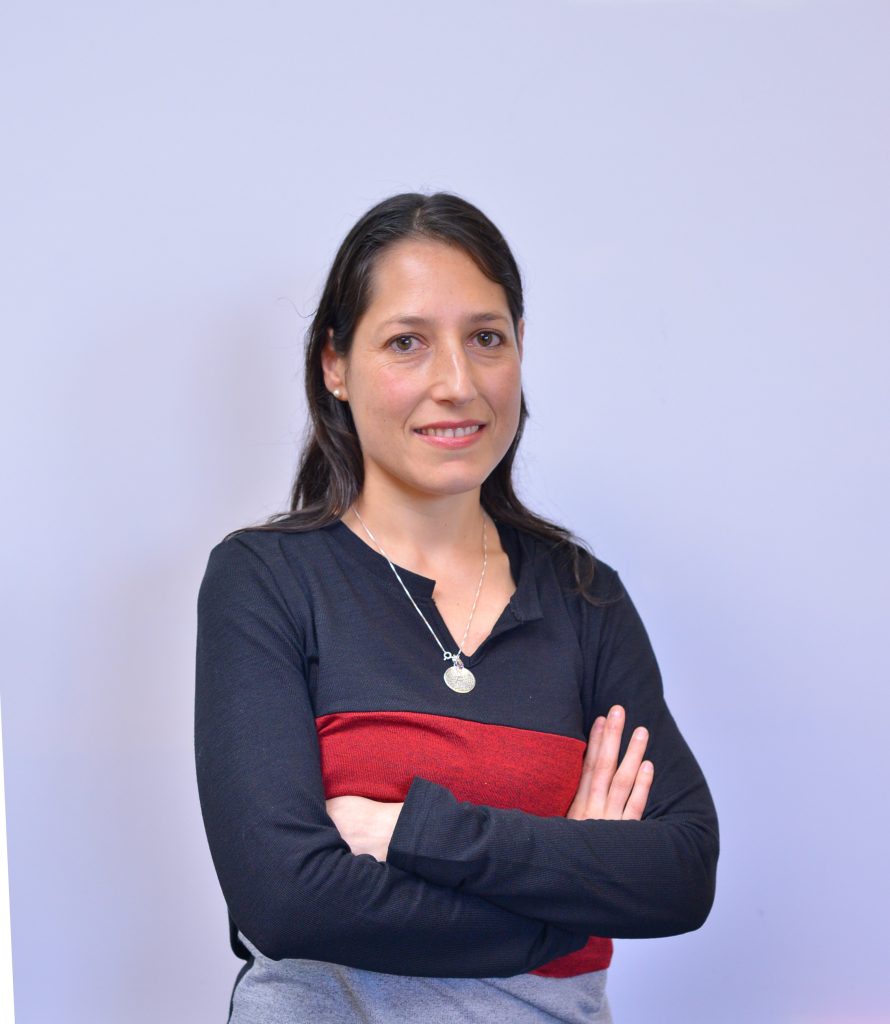
Collaboration, results, and international positioning
One of the most visible results of the work of the Biobío NA of PDE center is the regular holding of a traditional meeting at the University of Concepción on applied mathematics. The event, which has gained international prestige, is the Workshop on Numerical Analysis of Partial Differential Equations (WONAPDE). It celebrated its seventh edition in 2024, bringing together more than 200 participants from countries as diverse as Germany, Canada, Chile, Spain, the United States, France, Italy, Saudi Arabia, Brazil, China, Sweden and Panama, among others.
About this event, Dr. Stefan Diehl, a researcher at Lund University in Sweden, emphasized that “it is one of the best-organized conferences I have attended in all aspects. It is good that the number of participants is not too large. One of the main reasons for my participation is my close collaboration with Professor Raimund Bürger from Concepción, in the joint supervision of several doctoral students at both universities.”
Last modified: 3 de septiembre de 2025
